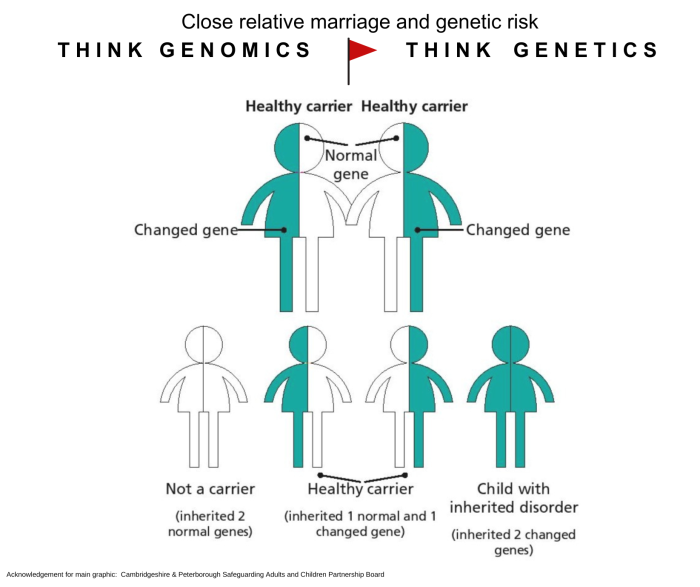 Close relative (consanguineous) marriage is widely practised globally. However, it is linked to an increased risk of recessive genetic disorders. Improving understanding about genetic inheritance can empower affected families and reduce unexpected, affected births and infant deaths.
Close relative (consanguineous) marriage is widely practised globally. However, it is linked to an increased risk of recessive genetic disorders. Improving understanding about genetic inheritance can empower affected families and reduce unexpected, affected births and infant deaths.
Families from all communities can be affected by genetic disorders, however some types of genetic disorder, known as recessive genetic disorders, are more common among families where couples are blood relatives, for example, cousins.
The Government’s ambition is, by 2025, to halve rates of stillbirths, neonatal and maternal deaths and brain injuries occurring during or soon after birth. Reducing genetic risk can contribute to meeting these targets and the legal duty to reduce inequalities under the NHS Constitution and the Health and Social Care Act 2012.
Midwifery and other healthcare professionals need to support equity of access to genetic information and services for those affected.
https://www.e-lfh.org.uk/programmes/close-relative-marriage/
This elearning programme has been developed for health visitors, midwives, GPs, paediatricians, social workers, public health practitioners, as well as genetic counsellors.
By undertaking the programme, learners will:
- review national and local data and gain new understanding about the nature of this healthcare need
- identify concrete ways to improve the quality of their service
- feel confident in sharing good practice principles with colleagues
Assessments are undertaken to reflect on learners’ new knowledge. A certificate is available to download on completion.
Learners may also be interested in the Genomics Education Programme, available in the Genomics in the NHS elearning programme in the elfh Hub.